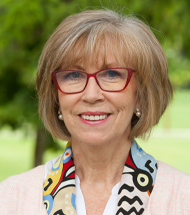Professor Feli Peralta participates in a congress on identity staff in intellectual disability.
"Self-determination in Intellectual Disability" has been the degree scroll of his discussion paper

Last Friday, October 10, Prof. Feli Peralta participated as speaker in a course on intellectual disability, organized by the Talita Foundation in Barcelona, with a discussion paper degree scroll "Self-determination in intellectual disability". The course was also attended by speakers from other institutions such as Mapfre Foundation, Talita or the University of Salamanca.
Self-perception implies knowing oneself and becoming aware of one's own identity; who and how we are. In the case of young people with intellectual disabilities, this process takes place throughout their development, with the support of high school and the family.
In this context, the goal of the conference has been to analyze, from different perspectives, how the family and school context should help people with disabilities to identify, understand and accept the difference (physical and cognitive), so that they can form an adjusted self-concept and an adequate self-esteem that will help them to better develop their abilities and thus improve their quality of life.
In this sense, the lecture of Professor Peralta has focused on analyzing the importance of self-determination staff for the integral development of young people with disabilities. Specifically, concepts such as empowerment, quality of life or self-knowledge and their implication in achieving this important educational goal have been analyzed.
Young people with disabilities need external support to face the challenges that life poses throughout their life cycle, such as the support provided by a safe environment, the family, and the support provided by professionals from the different educational centers, services and organizations that care for people with disabilities and their families.
Likewise, the importance of establishing collaborative relationships between parents and professionals has been raised so that, in a coherent and shared way, they can apply strategies to improve, from a positive and resilient perspective, the self-knowledge, self-esteem and expectations of young people with intellectual disabilities. Some of the conclusions presented have pointed out that the attitudes and practices that significant figures have around disability are essential for promote an identity and a positive self-image in young people with disabilities.
100 people, including professionals and families with disabled children, attended the course organized by the Talita Foundation.





